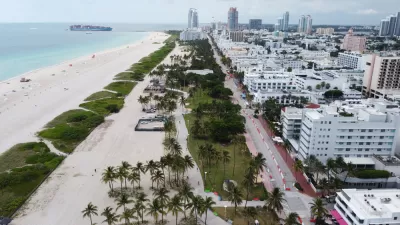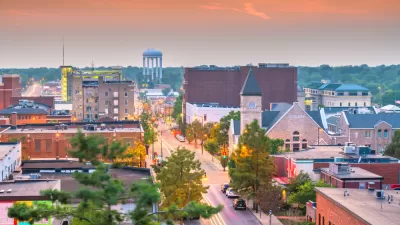Already one of the nation’s hottest real estate markets before the Covid-19 pandemic, the region became unaffordable for many middle-income households in the last few years.

For the first time since 1970 or earlier, Miami-Dade County lost population over a multi-year period between 2019 and 2022, according to an article by Konrad Putzier and Deborah Acosta in The Wall Street Journal.
“The population loss in the state’s largest county stands in contrast to the rest of Florida, which added more people between 2021 and 2022 than any other state.” But the Miami region also experienced a sharp rise in home prices and rental housing costs in roughly the same period, with 61 percent of area renters facing a ‘cost burden.’
“Despite the job and economic boom, Miami-Dade has experienced a bigger loss as a share of total population than the city of Baltimore and Wayne County, Mich., which includes Detroit, over the two-year period,” the authors add. While the region is adding white-collar jobs, hourly wages remain well below those in other major cities.
FULL STORY: Miami Sees Its First Population Drop in Decades

Planetizen Federal Action Tracker
A weekly monitor of how Trump’s orders and actions are impacting planners and planning in America.

San Francisco's School District Spent $105M To Build Affordable Housing for Teachers — And That's Just the Beginning
SFUSD joins a growing list of school districts using their land holdings to address housing affordability challenges faced by their own employees.

The Tiny, Adorable $7,000 Car Turning Japan Onto EVs
The single seat Mibot charges from a regular plug as quickly as an iPad, and is about half the price of an average EV.

Seattle's Plan for Adopting Driverless Cars
Equity, safety, accessibility and affordability are front of mind as the city prepares for robotaxis and other autonomous vehicles.

As Trump Phases Out FEMA, Is It Time to Flee the Floodplains?
With less federal funding available for disaster relief efforts, the need to relocate at-risk communities is more urgent than ever.

With Protected Lanes, 460% More People Commute by Bike
For those needing more ammo, more data proving what we already knew is here.
Urban Design for Planners 1: Software Tools
This six-course series explores essential urban design concepts using open source software and equips planners with the tools they need to participate fully in the urban design process.
Planning for Universal Design
Learn the tools for implementing Universal Design in planning regulations.
Smith Gee Studio
City of Charlotte
City of Camden Redevelopment Agency
City of Astoria
Transportation Research & Education Center (TREC) at Portland State University
US High Speed Rail Association
City of Camden Redevelopment Agency
Municipality of Princeton (NJ)





























